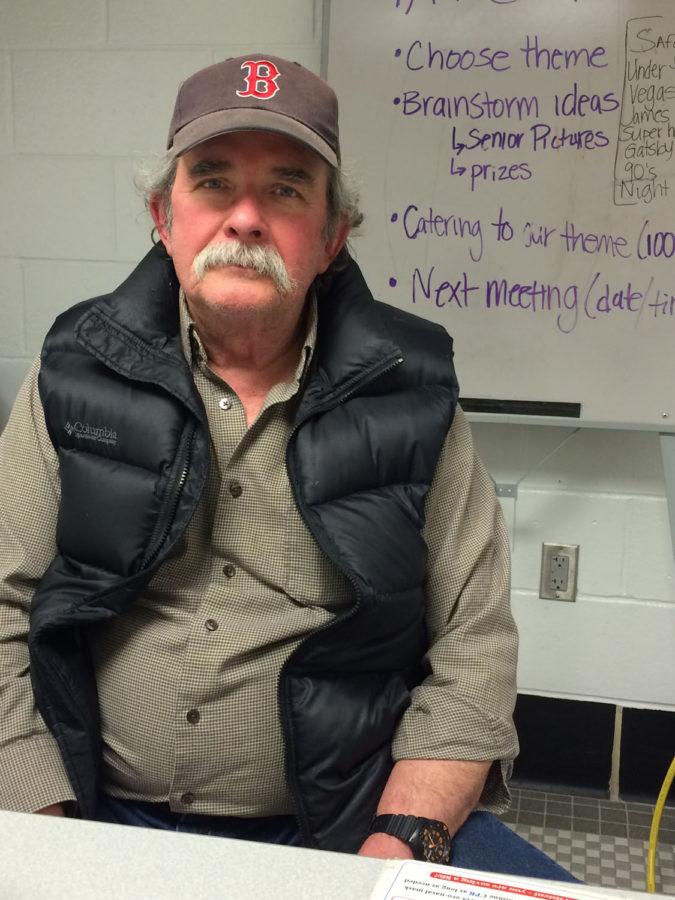Despite changes, ARC scuba clinic floats on
Feb 9, 2015
As a three-year-old boy watching the TV series, “Sea Hunt,” Brad Knop became fascinated with breathing underwater.
“It was on every week, and Lloyd Bridges was the diver in it, he was whom the plot was about,” Knop said. “I knew I wanted to be a diver, and he was my inspiration. … That’s really what got me interested.”
For the past 33 years, Knop has been running Midwest SCUBA Center in Champaign, pursuing his dream of teaching other people how to scuba dive. Additionally, Knop runs three scuba diving clinics at the ARC, which each run for two weeks in February, March and April. Students complete online work and two weeks of in-person instruction to obtain Professional Association of Diving Instructors certification for an open water environment. Students can sign up online for the in-person orientation, where they are required to demonstrate that they can swim 200 yards and tread water for 10 minutes.
He discovered his desire to share scuba with others after he took his first class around 1977.
“I just knew that I wanted to share this. I worked hard to become an instructor, and it just gets better and better all the time,” Knop said. “Unfortunately, when I die, I have to quit — I think, I don’t know that for a fact — but I just like it; I enjoy it.”
Get The Daily Illini in your inbox!
While it may seem strange to learn a skill more suited for vacations or in a state along the coast, Knop asserted that training in the Midwest can be easier on people’s wallets and give them the opportunity to explore freshwater areas.
“Well, we have a lot of great places to dive in fresh water, and you’ll see a lot fish. The water visibility can be anywhere from 20 to 50 foot, well, a lot of the oceans can be only 20 to 50 foot (visibility),” Knop said. “It’s cheaper to get your training here, in the Midwest, and then go enjoy your vacation and you can get more time in here.”
Lauren Henderson, a 2014 University graduate in integrative biology, initially planned on obtaining her certification for a study abroad program, but came to love scuba diving.
“I was planning on going on a study abroad that required scuba certification, I ended up not doing it, but now I just do (scuba diving) for fun,” she said. “All the teachers were really nice and it was a great time. Now it’s just sort of a hobby that I do, and it was really cool.”
According to Knop, not much has changed in how courses are taught under the Professional Association of Diving Instructors system. Developed in 1966 in Chicago, the system was created as a response to the teaching methods at certain organizations. According to its website, these organizations taught scuba with older equipment and in an unprofessional manner that made it difficult for people to learn. Knop equated these 16-week-long courses to the military’s approach to scuba.
One major shift in the clinic, however, has occurred in the last two years. Knop has implemented the use of online resources, altering the way he teaches and how students take the course.
“Online learning has changed everything. We are not required to do online learning, but I felt that the time is coming when most of your stuff was going to be online. I wanted to get it set up for the ARC and whoever comes in to teach this class after me, so that they don’t have to go through all the headaches,” Knop said. “We’re still kind of polishing the course up, and I’m happy with it because I don’t have to worry about people not doing their homework.”
While he’s had an interest in it, Tom Lewandowski, freshman in LAS, has never had the opportunity to go scuba diving and feels that having classes offered at the ARC is an opportunity to make diving more accessible to students.
“I always saw (scuba diving) as in the sense of something that I’d like to do in the ocean or a body of water — not in a pool,” Lewandowski said. “(But the classes) make it more feasible for students to get their certifications and abilities to go diving wherever they choose.”
The two weeks of in-person training, which often covers skills that were briefly demonstrated in the online course, was beneficial to Henderson in becoming more comfortable with breathing underwater and scuba.
“(Knop) is very understanding of people being scared of it — I was kind of freaked out in the beginning. I would encourage people to try it if they want to, because if they can go to the ocean, they’ll see lots of things they won’t even see snorkeling,” Henderson said. “All the teachers are very understanding in helping you.”
Despite trying to make the classes more manageable for students by allowing them to use the online book, Knop has seen a decline in the amount of students enrolled in the clinic.
“Back in the ’80s, we would have 20 people sign up for a class,” Knop said. “(Now,) there have been some classes where I don’t get anyone to sign up. I think a lot of it is money and the economy. … (After 9/11) it got bad, people were afraid to leave the country and afraid to go on vacations, not be able to get back into the U.S., which are problems some of my friends had.”
Despite the declining popularity, Knop said he feels confident in the choices he’s made.
“Would I do it again? I couldn’t be a rockstar, so the answer is yes,” he said. “You don’t get rich doing it — there are better jobs to make a living — but, (you get) a lot of enjoyment, and I think that’s part of it.”
Susan can be reached at [email protected].






